Vitamin deficiencies can have harmful effects on our skin, leading to issues such as rough, scaly skin and slow wound healing. These deficiencies may affect the immune system's ability to regulate allergic skin diseases like psoriasis and atopic dermatitis. Increasing susceptibility to skin infections and inflammatory diseases.
Deficiency of vitamin D can cause psoriasis and atopic dermatitis. These are both conditions that cause itchy, scaly rashes on the skin.
In this blog post, we will explain the symptoms and signs of vitamin deficiencies that cause skin allergies and the role of vitamins in preventing skin allergies.
Which Vitamin Deficiency Causes Skin Allergy: 6 Signs and Symptoms
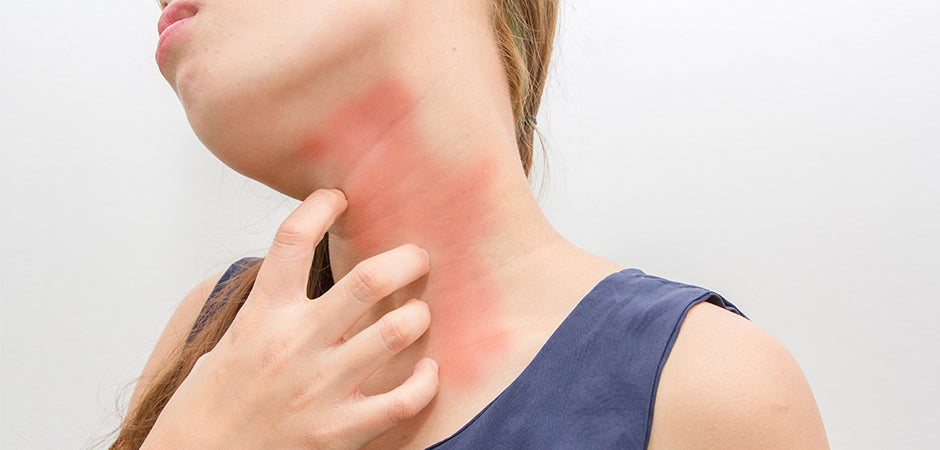
Symptoms of vitamin deficiencies that may trigger skin allergies. Understanding the indicators of vitamin deficiencies is essential to maintaining our overall health, especially since some weaknesses can lead to skin allergies. Here are common symptoms that could be signs of a fault.
Brittle Hair and Nails
Have you noticed your hair breaking more than usual? Or may your nails chip or break easily? These could be signs of a deficiency in specific vitamins. Specifically, biotin (vitamin B7) and E are vital for healthy hair and nails. A lack of these vitamins may cause brittle hair and nails.
Ulcers Or Cracks In the Mouth Corners
Canker sores and cracks at the corners of your mouth (angular cheilitis) are symptoms of B vitamin deficiency. Vitamins B1, B2, B6, and B12 play significant roles in maintaining our oral health. Without adequate amounts of these vitamins, these symptoms may occur.
Dry, Itchy Skin
If your skin frequently feels dry and itchy, this could be a symptom of a deficiency in vitamins A, B6, or D. These vitamins are vital for skin health and hydration. Vitamin A helps repair skin tissue, vitamin B6 helps prevent dry skin, and vitamin D works with your immune system to rejuvenate the skin and keep it moisturized.

Rough, Scaly Skin Patches
Do you have rough patches of skin, particularly on your arms? This could be a sign you're lacking vitamins A and C. Both vitamins are crucial for skin repair and regeneration. We produce more sebum when we consume vitamin A, which keeps our skin moisturized, while vitamin C produces collagen, maintaining elasticity and firmness.
Skin Burning Sensation and Malar Rash
A burning sensation on the skin or a malar rash (a rash that spreads across your cheeks and nose) can indicate insufficient niacin or vitamin B3. Niacin plays a significant role in keeping our skin healthy; you may experience these uncomfortable symptoms without enough.
Scurvy
Although rare today, scurvy is caused by a severe deficiency in vitamin C. Known more commonly for its symptoms such as fatigue, swollen gums, and joint pain, scurvy can also manifest skin symptoms. These include petechiae (small red spots), corkscrew hairs, and poor wound healing.
Skin Allergy Preventive Role of Vitamins

Vitamins have benefits beyond bone health. It's also vital for maintaining healthy skin. It helps manage your skin's immune system and promotes skin cell growth, repair, and metabolism, which optimizes the skin's immune system and enhances the skin barrier. We've established how vitamins are crucial for skin health, so let's explore how they can help prevent allergies:
- Boosting Immune System: Vitamins, especially Vitamin C, strengthen the immune system and help it function optimally. This can reduce the body's overactive responses to allergens, often resulting in skin allergies.
- Strengthening Skin Barrier: You may have hives if you suddenly notice itchy, pinkish-red bumps or welts on your skin. This could be related to a vitamin D deficiency. Vitamin D has anti-inflammatory properties that can reduce skin inflammation.
- Supporting Cell Regeneration: Vitamins A and C support cell growth and regeneration, helping to repair damaged skin and prevent the onset of allergies.
- Antioxidant Protection: Vitamin C and E are potent anti-oxidants that help the skin resist damage, which can lead to skin allergies.
- Regulating Oil Production: Vitamin A helps regulate oil production in the skin, preventing clogged pores that can lead to skin irritation and allergies.
- Promoting Healthy Blood Circulation: Vitamin E promotes healthy blood circulation, ensuring skin cells get the nutrients needed to stay healthy and allergy-free.
Ensuring Adequate Vitamin Intake

To harness these benefits and prevent skin allergies, it's crucial to ensure adequate vitamin intake. Here's how:
- Eat a Balanced Diet: Eat plenty of fruits, veggies, lean proteins, and whole grains. These foods are rich in essential vitamins.
- Consider Supplements: If you struggle to get enough vitamins from your diet, consider taking a supplement. Only start a new supplement regimen after consulting a doctor.
- Get Regular Sunlight: Sunshine is a natural source of vitamin D. Try to get 10-30 minutes of sunlight during midday several times each week. For most people, 600-800 IU of vitamin D is adequate. However, some may require a higher dose. Do not take over 4,000 IU of vitamin D supplements per day unless recommended by your doctor.
- Controls Antimicrobial Defenses: Vitamin D can control the production of antimicrobial proteins that serve as natural antibiotics for your skin, thus preventing skin allergies.
- Eat vitamin D-rich foods: Salmon, tuna, swordfish, beef liver, cheese, egg yolks, vitamin-D-fortified orange juice, and dairy and plant milk.
Conclusion
From our discursive journey, it's clear that vitamins play a fundamental role in maintaining our skin health and preventing allergies. Vitamin deficiencies, unknown to many, are an underlying cause of various skin conditions that are often mistaken as allergies. Understanding the signs of these deficiencies is the first step toward preventing them.
It’s also essential to ensure your diet is balanced and consider supplements to ensure your skin stays healthy. In conclusion, maintaining optimal vitamin levels is a preventive measure everyone should incorporate to keep skin allergies at bay. Remember, the secret to healthy, radiant skin might be as simple as getting the right amount of vitamins.



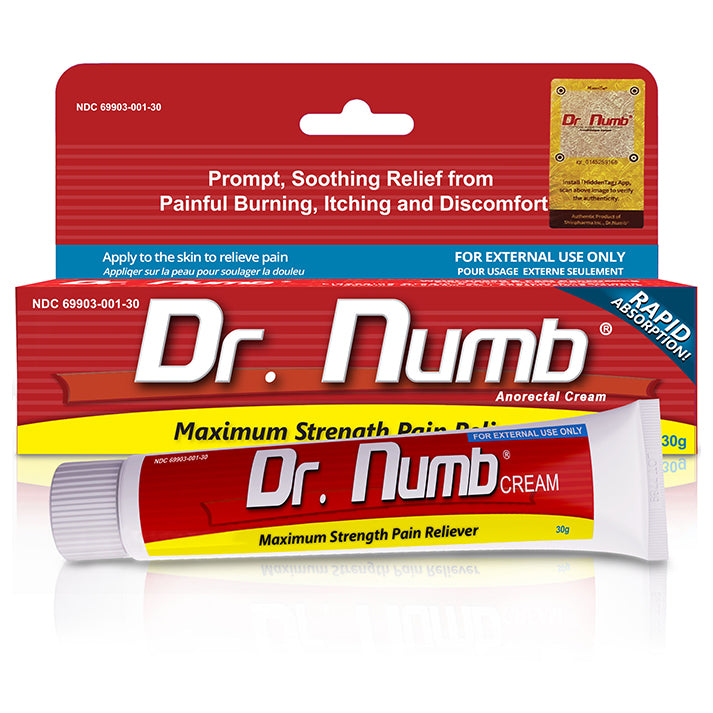


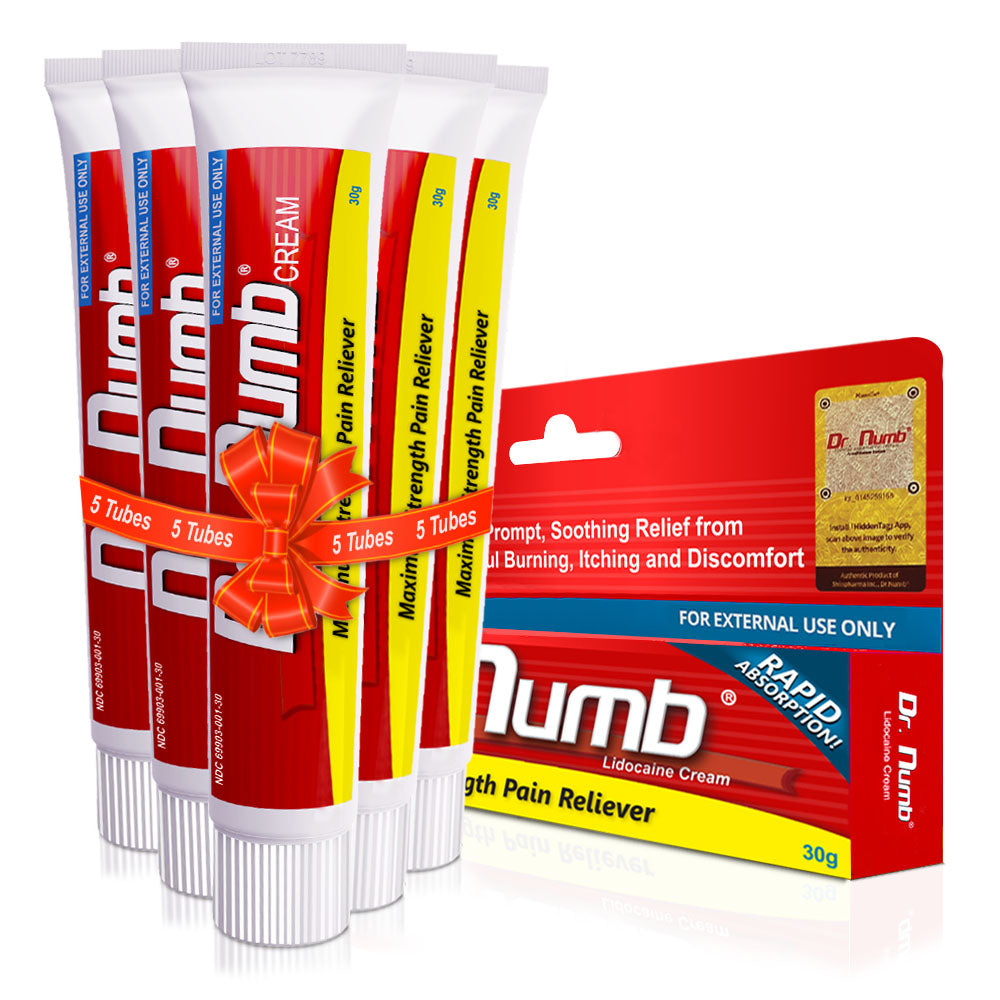


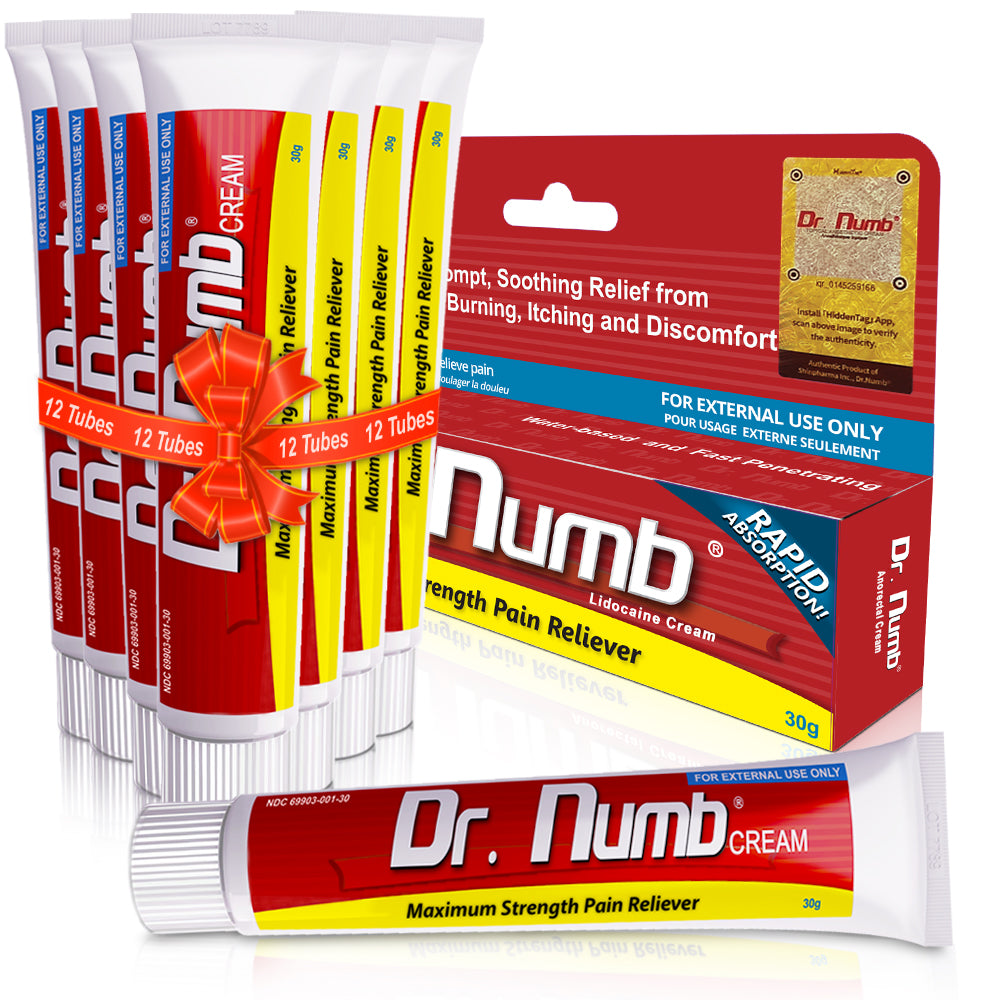





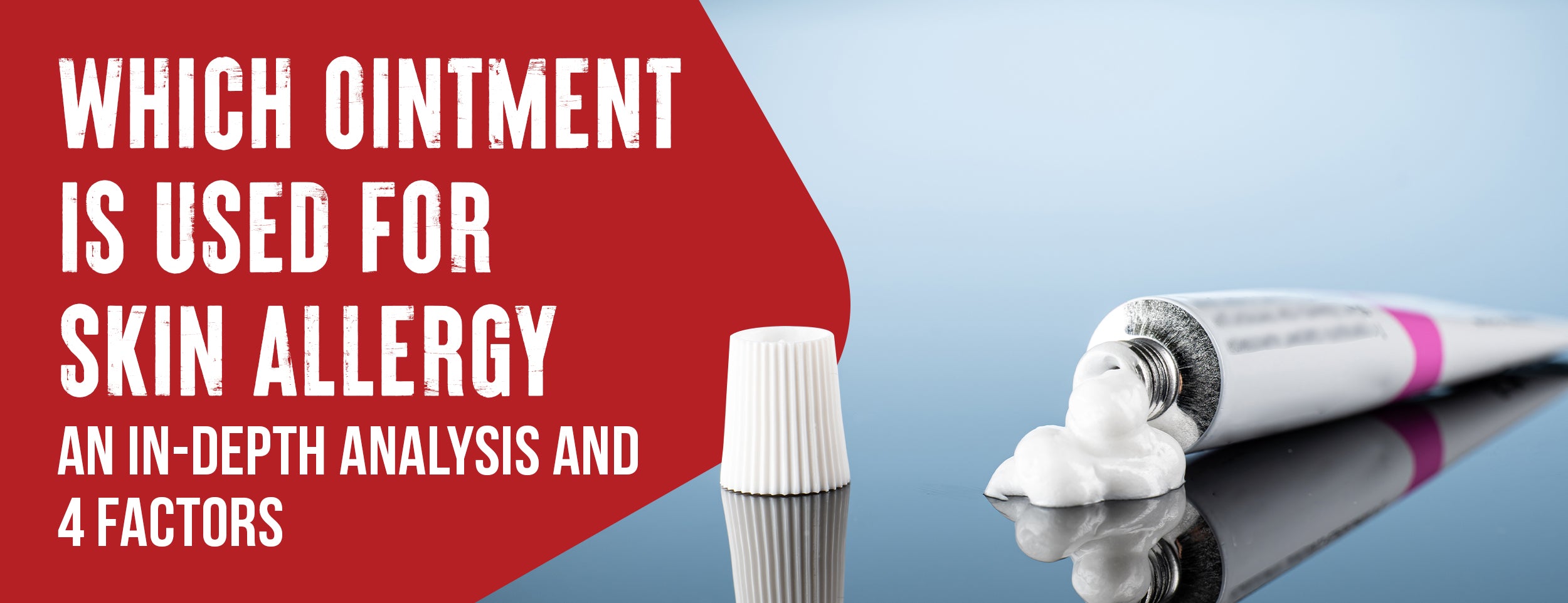
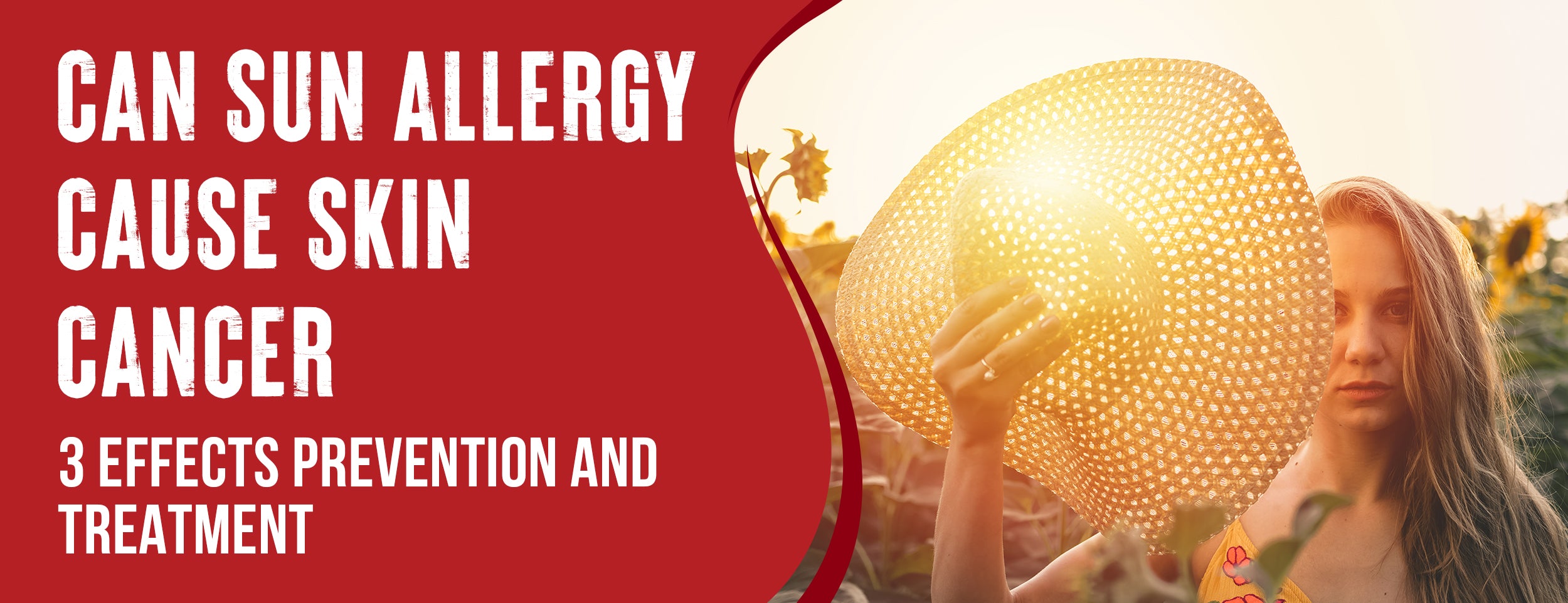
![The Most Common Food Allergies That Cause Itchy Skin [6 Common Symptoms]](http://drnumb.com/cdn/shop/articles/Can_Food_Allergies_Cause_Itchy_Skin__17_Listed_6_Symptoms_Common.jpg?v=1714999986)


